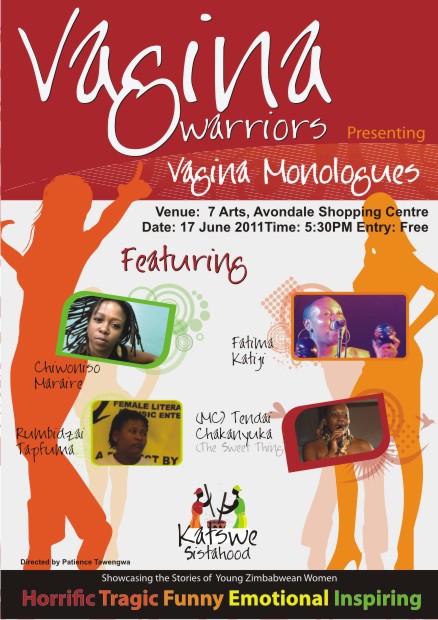When I told my father I wanted to be a journalist he looked at me in shock and said, ‘But women journalists are loose…are you telling me that this is what you want for yourself?’ Never one to back down from a fight, that conversation ended in a fierce argument. My mother knew better than to intervene. I couldn’t understand how my father, with whom I watched Christiane Amanpour on CNN and Haru Mutasa on Al Jazeera, and who would sit with me and critique interview and reporting styles could possibly believe that journalism amounted to prostitution.
Having been in the field for a while now, I understand his position. Zimbabwe’s women journalists, more than women in any other profession, I think, suffer intolerable harassment and discrimination. It comes with the job. It really doesn’t matter which medium or establishment a woman works for, sexual harassment appears to be an industry standard. Scant attention is drawn to the sexual scandals that plague Zimbabwe Broadcasting Holdings; I suppose it’s a case of the pot calling the kettle black. In 2009 numerous interns and women journalists filed harassment complaints against the then News and Current Affairs Manager Tarzen Mandizvidza and Reporters Manager O Brian Rwafa. A female respondent to a Gender Links survey regarding women in Zimbabwe’s media observed, ‘Where issues of sexual harassment or sexist language are concerned, women who raise these issues are often not taken seriously and in particular case of harassment, male bosses sympathise with those accused of harassment and at times try to underplay the charge at hand.’
This is aptly demonstrated by ZBH CEO, Happison Muchechetere who, at the time threatened to fire the women and labelled them ‘prostitutes’. ZBH sexual harassment issues are ongoing. This month the Zimbabwe Union of Journalists Secretary General, Foster Dongozi, told The Zimbabwean that there were escalating reports of female journalists being harassed on the job, especially at the state broadcaster where bosses were allegedly sexually harassing female reporters for roles as news readers.
New players in the media industry have also adopted the practice of objectifying and discriminating against women. Recently, Sokwanele reported that young female college graduates have lodged complaints that they are being asked on dates by some of the editors of the newly licensed media houses if they want to be employed.
The issues plaguing women in media are not confined to sexual harassment. A 2009 study conducted by Gender Links as part of the Glass Ceilings: Women and Men in Southern African Media Survey found that although half of Zimbabwe’s media houses had gender parity targets, there were six times as many men as women in Zimbabwe media houses surveyed. This is surprising considering that women constitute the majority of media and communication studies students. The survey also found that men were more likely to be given higher remuneration and better working conditions than women.
Moreover, while women in Zimbabwean media houses are under-represented in most areas of work, (constituting 17% of editorial departments), they are found in higher proportions in support roles in areas considered “women’s work”. These include advertising and marketing (40%) and human resources (58%).
Fed up with this state of affairs, female media practitioners issued a statement this year in March, demanding an end to these unfair practices. Again very little notice was paid to it by the media in general, almost as if in collusion. The media is very quick to point out the failings of the government, but is selectively shortsighted when its own practices are corrupt and degrading.










